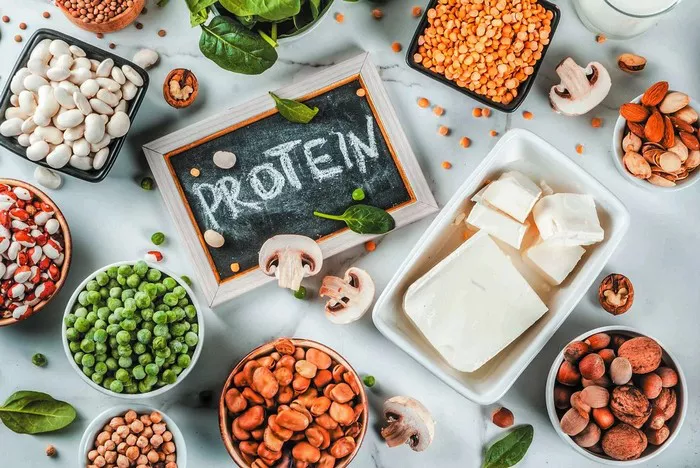Breakfast is often touted as the most important meal of the day, setting the tone for energy levels, metabolism, and overall nutritional intake. Integrating an adequate amount of protein into your morning meal is crucial for several physiological and health benefits. This article delves into the reasons why protein is essential for breakfast, how much is optimal, and practical ways to incorporate it into your morning routine.
Understanding Protein and Its Role in Health
What Is Protein and Why Is It Important?
Protein is a macronutrient composed of amino acids that are essential for the building and repair of tissues in the body. It also plays a pivotal role in creating enzymes and hormones, maintaining fluid balance, and supporting immune function. Consuming protein helps to stabilize blood sugar levels, reduce hunger, and preserve lean muscle mass, which are all important for overall health and well-being.
The Biological Impact of Protein in the Morning
Starting your day with a protein-rich breakfast can have numerous benefits. It can increase satiety, reduce cravings, and decrease overall calorie intake throughout the day. Protein consumption in the morning also stimulates thermogenesis and improves metabolic rates, which can aid in weight management and body composition.
How Much Protein Do You Need at Breakfast?
Determining Your Daily Protein Requirements
The Recommended Dietary Allowance (RDA) for protein for most adults is 0.8 grams per kilogram of body weight per day. Athletes or physically active individuals, elderly adults, and people recovering from illness or injury may have increased protein needs.
Calculating the Ideal Protein for Breakfast
While the general guideline is to distribute protein intake evenly throughout the day, aiming for approximately 15-30 grams of protein for breakfast is advised by nutrition experts. This amount has been shown to support muscle health and satiety effectively.
Factors Influencing Morning Protein Needs
Several factors can modify individual protein needs in the morning:
Physical Activity Levels: More active individuals may benefit from higher protein intakes to support muscle repair and growth.
Age: Older adults need more protein to counteract muscle loss associated with aging.
Health Goals: Those aiming for weight loss might find that increasing protein intake helps manage hunger and maintain lean muscle.
High-Protein Breakfast Foods
Choosing the Right Protein Sources
Selecting high-quality protein sources that are low in saturated fats and high in essential nutrients is key. Excellent sources of morning protein include:
Eggs: A versatile and high-quality protein source containing about 6 to 8 grams of protein per egg.
Greek Yogurt: Rich in protein and probiotics, it can contain up to 20 grams of protein per serving.
Cottage Cheese: Low in fat and high in protein, providing around 28 grams per cup.
Lean Meats: Such as turkey or chicken sausage, which are healthier alternatives to traditional breakfast meats.
Plant-Based Proteins: Including tofu, tempeh, and legumes, which are excellent for those following vegetarian or vegan diets.
Incorporating Protein into Your Breakfast
Here are some practical ideas for protein-rich breakfasts:
Smoothies: Blend Greek yogurt or a scoop of protein powder with fruits and vegetables.
Omelets: Fill with veggies, cheese, and a lean protein source like turkey.
Overnight Oats: Mix with chia seeds, protein powder, or nut butter.
Breakfast Bowls: Combine quinoa or another whole grain with eggs and sautéed greens.
Toast Toppers: Use hummus, avocado, and poached eggs on whole-grain bread.
Balancing Macronutrients for Breakfast
Importance of a Balanced Breakfast
While protein is important, a balanced breakfast should also include healthy fats and carbohydrates. This combination helps to improve overall satiety and energy levels throughout the day.
Examples of Balanced Breakfasts
1. Egg scramble with spinach, tomatoes, and feta, served with a slice of whole-grain toast and avocado.
2. Smoothie made with Greek yogurt, mixed berries, a handful of spinach, and a tablespoon of flaxseeds.
3. Oatmeal topped with almond butter, banana slices, and a sprinkle of hemp seeds.
Conclusion: Personalizing Your Protein Intake
In conclusion, while the recommended range for protein intake at breakfast is between 15 and 30 grams, individual needs can vary. Personal factors such as lifestyle, age, health goals, and dietary preferences all play a role in determining the right amount for you. Experimenting with different types of protein sources and monitoring how you feel can help you find the most suitable and satisfying choice for your morning meal. Remember, the goal of a high-protein breakfast is not only to support physical health but also to enhance mental performance and provide energy that lasts throughout the day.
[inline_related_posts title=”You Might Be Interested In” title_align=”left” style=”list” number=”6″ align=”none” ids=”8563,8486,8483″ by=”categories” orderby=”rand” order=”DESC” hide_thumb=”no” thumb_right=”no” views=”no” date=”yes” grid_columns=”2″ post_type=”” tax=””]































